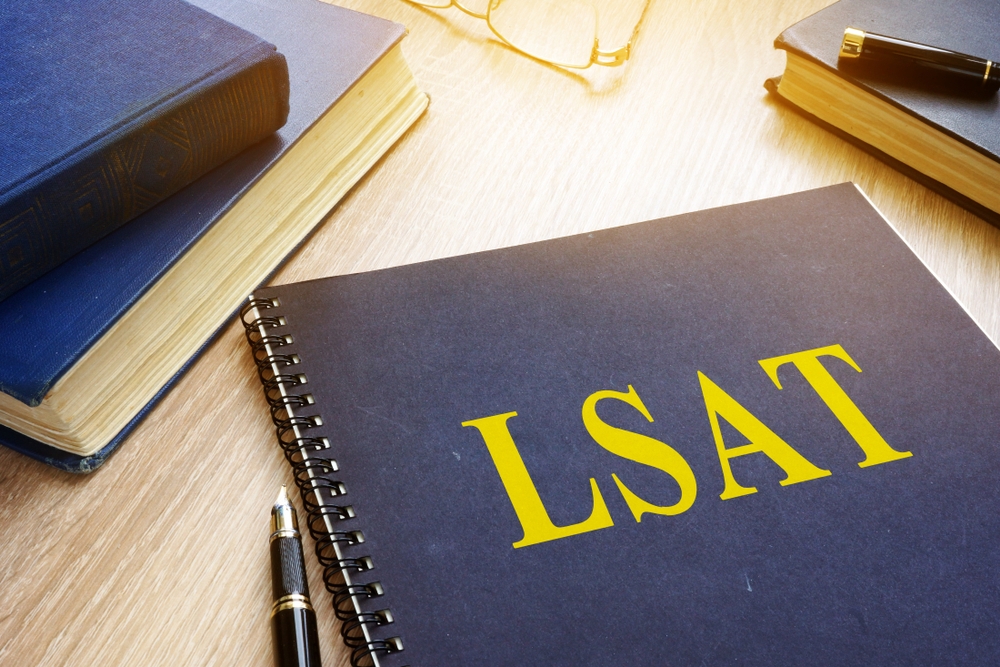
It really wasn’t a great weekend for the Law School Admissions Test and the people behind it.
Unlike in the olden days when people (raises hand) had to go to some dank, far-off test center to take the LSAT, law school applicants can now take it remotely. Remote invigilation of the LSAT allows test-takers to take the exam from the comfort of their own homes using their own computers.
Here is how the process is at least supposed to work:
Test-takers register for the LSAT through the Law School Admission Council (LSAC) website. During the registration process, they can choose to take the exam remotely. Then then need to ensure that their computer meets the technical requirements for remote testing, such as having a stable internet connection and a compatible operating system.
On the day of the exam, test-takers log in to the LSAC's LawHub platform using their credentials and are guided through the process of setting up their testing environment, which includes verifying their identity, scanning their testing area, and installing the necessary software for remote invigilation.
Once the setup is complete, the test-taker begins the LSAT. Throughout the exam, the test-taker is monitored remotely by proctors who use advanced technology to ensure test security and prevent cheating[6]. The proctors can view the test-taker's screen, record audio and video, and monitor their activity using artificial intelligence algorithms.
The problem this weekend was the system crushing under its own weight. It was a process nightmare, with thousands of students who were attempting to take the LSAT remotely experiencing problems with the proctoring system. It was horrific to the point that many people were either completely unable to test or abandoned the process.
The best thing to do in situations such as this is head over to Reddit, which I of course did. One of the threads that went viral on the LSAT subreddit was a ChatGPT-generated menu of what test-takers should do in response to the weekend’s events.
I took ChatGPT’s suggestions, polished them up, and asked Michael T. van der Veen, a Philadelphia lawyer, to look these over and comment on the best possible course of action from this pretty comprehensive list of 12 suggestions:
1. Flexible Retest Dates: Offer multiple retest dates to accommodate individuals who cannot take the test on August 22 due to prior academic or work commitments.
2. Faster Scoring: To minimize disruptions to the admissions cycle, consider expediting the scoring process for those impacted by the issue.
3. Refund & Compensation: In addition to a test fee refund, LSAC could consider reimbursing students for related expenses like prep courses and study materials.
4. Extended Application Deadlines: Collaborate with law schools to extend application deadlines for students affected by the test problem.
5. Extra Testing Opportunities: Add an extra LSAT testing window before the Fall 2024 admissions cycle, giving students another chance to take the test after proper preparation.
6. Free Prep Materials: Provide complimentary access to official LSAT prep materials or courses to assist with re-preparation.
7. Official Communication to Law Schools: LSAC should formally notify law schools about the issue, ensuring admissions committees are fully informed when reviewing applications.
8. Future Test Waiver: Offer a voucher or waiver for a future LSAT attempt, allowing affected students to retake the test when they feel ready.
9. Apology & Transparency: Issue an official apology, acknowledging the seriousness of the problem, along with clear communication about the issue's cause and prevention measures.
10. Score Adjustment Consideration: While more complex, LSAC could explore adjusting retest scores to account for the challenges and stress experienced by affected students.
11. Feedback Mechanism: Create a platform for impacted test-takers to share concerns and feedback directly with LSAC regarding proposed solutions and future tests.
12. Independent Investigation & Report: Recommend an unbiased investigation into the technical failures, followed by a public report outlining findings and actions taken to address the issue.
Van der Veen’s feedback on this list:
“Overall, this is a really good effort by ChatGPT. However, the one thing not covered here, is that maybe it’s time to stop giving the LSAT online and get everybody back into testing centers. If there are process problems with the testing centers, including where they’re located, that is something that LSAC needs to fix.”
Of the solutions offered, van der Veen leans towards number 9 and 12, arguing that “At a minimum, and in the spirit of fairness, the agency responsible needs to take responsibility for the breakdown, the stress, that it caused theories, and come up with a workable solution, to minimize the chances of this happening again.”
Mercifully, we may be close to the final straw for what is a pretty horrific test of many who sit for it. Two years ago, the American Bar Association announced that as of 2025 it will eliminate the requirement that accredited law schools use an admissions test.
Given that an increasing number of applicants and schools believe that the LSAT is simply a great predictor of how much discomfort one can endure, the events of this past weekend might be best-remembered as a swan song for something that should have disappeared ages ago.
